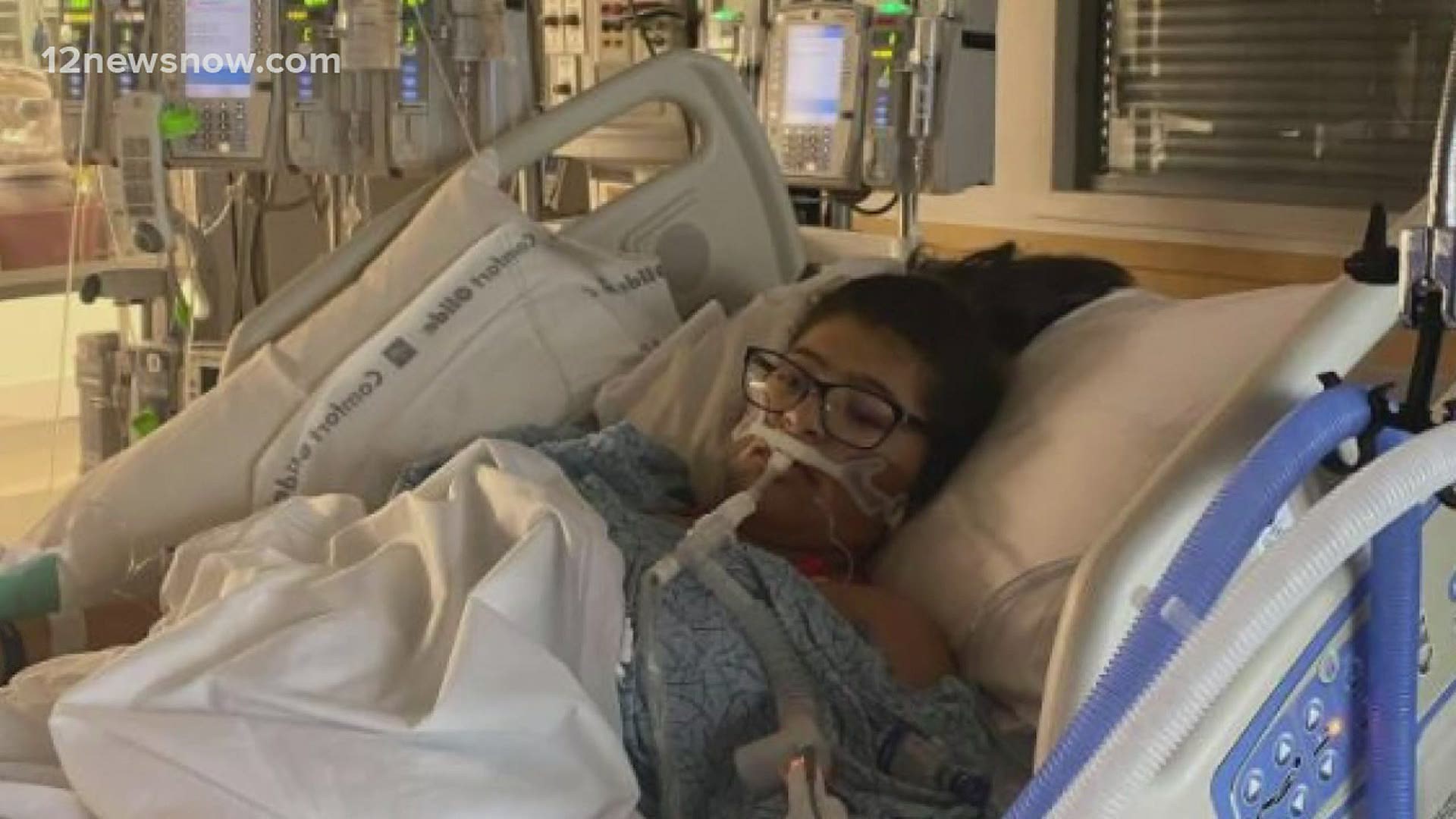BEAUMONT, Texas — Earlier in December, Bianca Sanchez' 13-year-old daughter was diagnosed with strep throat, but the medication prescribed wasn't helping.
After a few days, Sanchez took her daughter to the emergency room, where she tested positive for COVID-19. She was transported to a hospital in Houston.
"So she was in the ICU and then when I got there, that's when they told me she had multi-system inflammatory syndrome," Sanchez said.
Her daughter then tested negative for COVID-19 when she arrived at the hospital.
Dr. Flor Munoz is an associate professor of pediatrics at Baylor University. She said children usually don't have severe cases of COVID-19, but after effects are possible.
"And those are the patients that have recovered from COVID that might have very mild symptoms, or not even know they've had COVID," Munoz said.
Multi-system inflammatory syndrome is one of those possible effects.
"So what they said happened was, she had COVID like four weeks ago, and then four weeks later when the antibodies started forming, she had this reaction to it," Sanchez said.
Sanchez said she had no idea her daughter had contracted the virus, which makes this even scarier.
CDC | COVID-19 and kids
Two weeks after Thanksgiving, Sanchez and her son tested negative for the virus after an exposure. The rest of the household didn't have any symptoms.
"What are the odds that every single one of us in the house was asymptomatic and I guess that we all were because if she had it, there's no way around the fact that we all had it," Sanchez said.
Thankfully, her daughter is doing better now. She wants to remind people that the pandemic should be taken seriously.
"Just because you have gone a whole year without wearing your mask and not doing anything, that doesn't mean your choice didn't affect another family," Sanchez said.
Dr. Munoz said even if most children don't experience severe symptoms, the risk of transmission to other high risk groups doesn't go away. She says children who are overweight, obese, diabetic, and those who suffer from heart and lung diseases are more to the virus.
"Ae do have a high level of virus out there in the community right now. It's highly contagious and this a a virus that we worry about because it's really difficult to control," Munoz said.
Sanchez said her daughter did have asthma, which is considered an underlying health condition. However, Sanchez says her daughter's oxygen levels and breathing haven't been a problem during her hospitalization.
"It was only everything else that was impacted. Especially her heart." said Sanchez.
Her daughter is expecting to be released on Thursday, but will need cardiologist visits and blood pressure medication for the time being.

